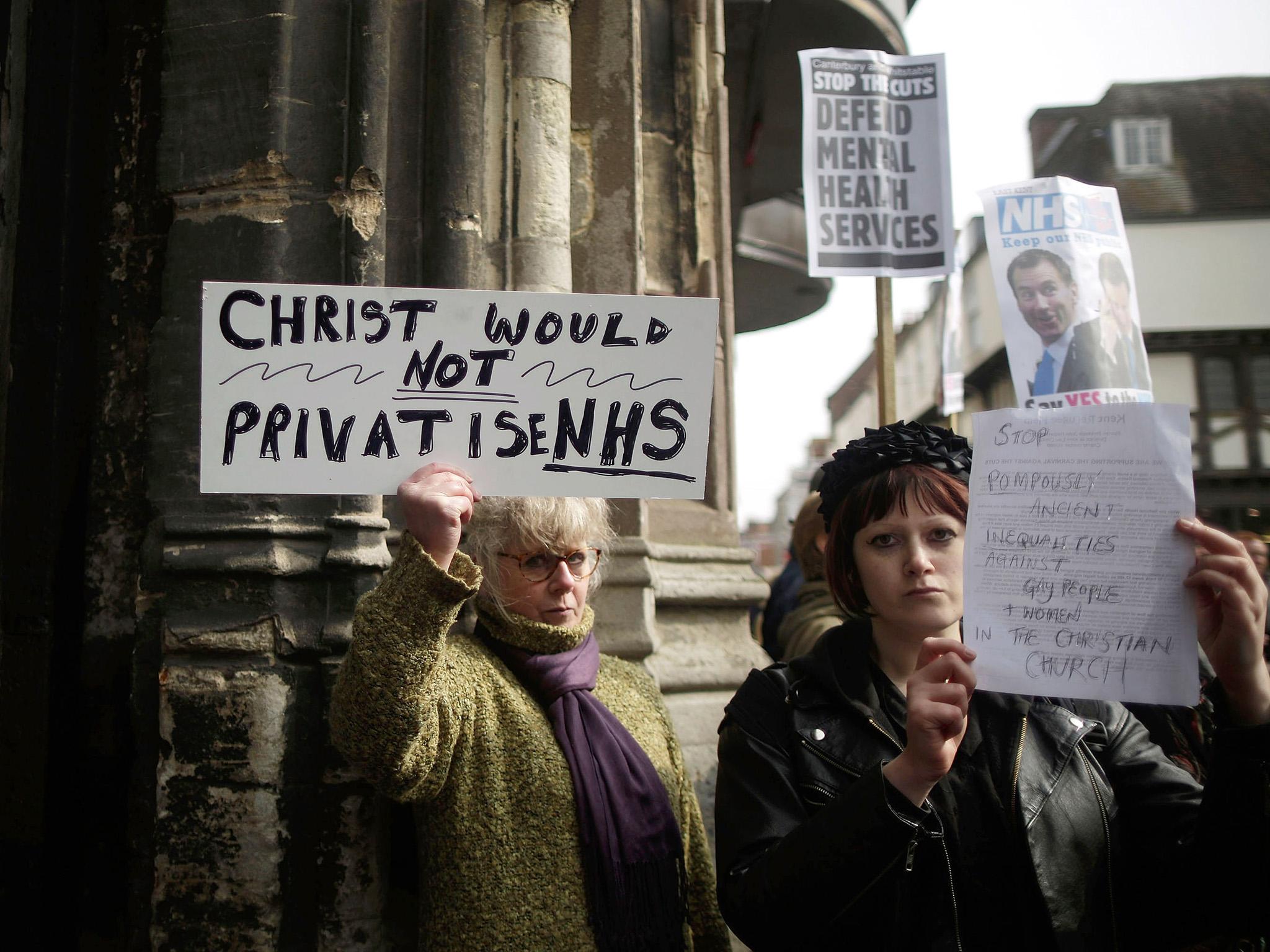Commission on Economic Justice urges radical economic shake up, but new government needed to achieve it
With inequality ever more glaring, the nation needs reforms as radical as those after the war or in the 1980s, but the current Government's plans will only take us backwards

Your support helps us to tell the story
From reproductive rights to climate change to Big Tech, The Independent is on the ground when the story is developing. Whether it's investigating the financials of Elon Musk's pro-Trump PAC or producing our latest documentary, 'The A Word', which shines a light on the American women fighting for reproductive rights, we know how important it is to parse out the facts from the messaging.
At such a critical moment in US history, we need reporters on the ground. Your donation allows us to keep sending journalists to speak to both sides of the story.
The Independent is trusted by Americans across the entire political spectrum. And unlike many other quality news outlets, we choose not to lock Americans out of our reporting and analysis with paywalls. We believe quality journalism should be available to everyone, paid for by those who can afford it.
Your support makes all the difference.Give the Institute for Public Policy Research’s Commission on Economic Justice credit. As well as identifying problems with the British economy – and what it says should be familiar to anyone who’s been paying attention – it also advocates a menu of bold solutions.
The problems are, of course, rising inequality, growth in GDP per head of 12 per cent that hasn’t been shared, with real wages falling. Increased casualisation of work, poor productivity, pitifully low investment. The yawning gap between the north and the south has only got wider.
Meanwhile, the 1 per cent, and, perhaps more accurately, the 0.1 per cent has largely reacted to this with a shrug, entering the political discourse only at such time as people suggest that it might like to contribute a little more, or accept a little less, or both.
So what are those solutions: A fairer and simpler tax system. New levies on wealth and a sovereign fund to better share out the proceeds. More power for the UK’s regions, including fiscal devolution. Regional banks to help fund emerging companies, better regulation and taxation of the new monopolies of the digital economy. Stronger unions.
The last would be particularly handy. I’ve written before that the death of collective bargaining across the UK has played a huge role in crimping wages.
For many people, the annual wage round is a thing of a past. To get more money, their only option is often to change job. Is it any wonder that the proportion of the UK economy going towards wages has fallen to just 73 per cent, a level not seen since the Second World War?
The Commission is broad based. Its report is more than simply a document of the left. In addition to Justin Wellby, the Archbishop of Canterbury, who was out promoting it today, it includes senior figures from business (CEOs, fund managers, even a McKinseyite), academics, and TUC director general Frances O’Grady.
That it has been given a wide airing speaks to the credibility of its members.
It is also hard to argue with its central case: The need for radical reform, in fact, something every bit as radical as what the UK experienced after the war, and then again in the 1980s, if the current problems aren’t to lead the country down a very dark road.
Interestingly, some of its ideas were echoed by Vince Cable, the Liberal Democrat leader, in an article for The Independent today. He also talked about the problems in Britain’s economy, and mulled ways of fixing them: Including the suggestion of doing more to tax wealth rather than income, through reformed property and inheritance taxes.
The Institute for Fiscal Studies, he pointed out, said the Liberal Democrat manifesto was the most redistributive of the three main parties. Labour’s more traditional offering included calls for higher corporate taxes and higher income taxes on top earners, although its aims were similar.
But what of the Conservative Government we are saddled with?
It has also recognised that the UK economy has problems, and that is not serving the people that live on these islands very well. Prime Minister Theresa May’s oft repeated talk about creating a “Britain that works for the many” demonstrate that.
But the drugs she and her party prescribe to fix the debilitating illness that afflicts UK plc could hardly be less appropriate.
Hard Brexit. Stand up for the national anthem and gush over the royals. Wave the union flag. Accuse anyone who suggests we might need to do a bit more than that of seeking to do down Britain (I’m looking at you Iain Duncan-Smith, you and the lizards surrounding you). Stop people from coming here while harassing those that already live here, even if they were born here but happen to have fallen afoul of some arcane law. Oh, and offer a few tepid reforms to corporate governance that don’t really get us anywhere given they’re updates to a code that operates on the basis of “comply or explain”. Which means you don’t have to comply at all if you don’t want to.
That dark road I talked of? The Conservatives will get us there an awful lot more quickly than simply carrying on as we are now.
The IPPR’s Commission has made a worthy contribution. It might be an idea for John McDonnell, the Shadow Chancellor, to spend some time reading it. In many ways, it’s more progressive and imaginative than the last Labour manifesto.
Hopefully he will because it’s going to take a new government to accomplish the reforms that the nation needs. That probably means Mr McDonnell as Chancellor.
Join our commenting forum
Join thought-provoking conversations, follow other Independent readers and see their replies
0Comments